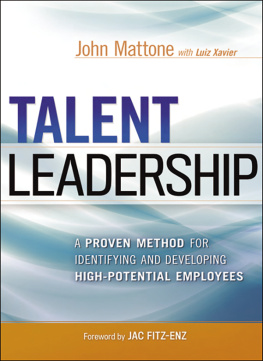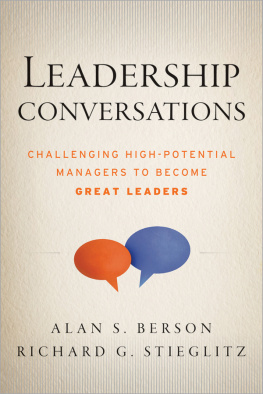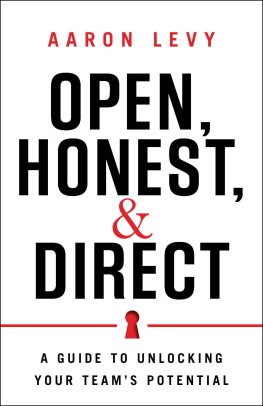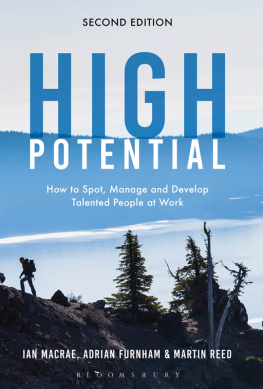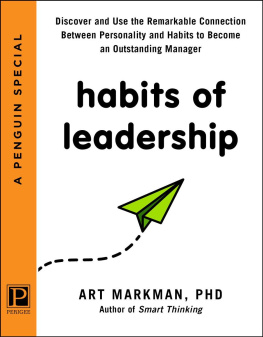Ian MacRae is a psychologist and writer who began consulting work at 18. He has a BA (Hons) Psychology from the University of British Columbia and an MSc Research Methods in Psychology from University College London where he researched the personality of High Flyers supervised by Adrian Furnham. He now lives and works between London, and British Columbia, Canada.
Adrian Furnham is Professor of Psychology at UCL, Adjunct Professor of Management at the Norwegian School of Management, and has lectured in the Middle East. He has written over 1000 scientific papers and 70 books and is among the most well-known and productive psychologists in the world, noted for his motivational speaking. Adrian is also a newspaper columnist previously at the Financial Times , now at the Sunday Times . He is a regular contributor to national and international radio and television stations including the BBC, CNN, and ITV.
All men dream, but not equally. Those who dream by night in the dusty recesses of their minds, wake in the day to find that it was vanity: but the dreamers of the day are dangerous men, for they may act on their dreams with open eyes, to make them possible.
T. E. Lawrence, Seven Pillars of Wisdom
Try to learn something about everything and everything about something.
Thomas Huxley, Quoted in Nature Vol. XLVI (30 October 1902) , p.658.
Opportunity is missed by most people because it is dressed in overalls and looks like work.
Thomas A. Edison
10.1 Introduction
Development can mean the difference between the great and the good; the transformation of the mediocre into the excellent; it can be the difference between failure and success. Executives who consider a job to be a set of tasks, miss the importance of developing people (Berson and Steiglitz, 2013, p.93).
Development is a lifelong progress that starts with the earliest human learning. Babies, children, and adults all develop at different rates based on their genetics, and their environment. Some people are more predisposed to picking things up, understanding other people and their surroundings. Some people learn very quickly while others need practice. In psychology, development just means change in a person over time. For example, physical growth and learning are developmental. In the context of human resources and performance at work however, typically development means deliberate effort, training, and learning that is intended to directly or indirectly improve performance or realise potential.
In common usage, training is different from development. The key to this chapter is development in the sense of really developing high potential. Training is part of development, and is important but is less interesting from the perspective of this book, and youll see why in a moment.
10.2 The Lessons of Experience
There are many ways to develop talented high potential people. Talented leaders provide much the same narrative of the influential factors in their development. Studies across organisations in different sectors as well as those within big corporations and across different corporate and national cultures, even different historical time periods, reveal the same story. Successful leaders who have proven to develop their talents mention six powerful learning experiences.
The first is early work experience . This may be a part-time job at school; a relatively unskilled summer holiday job at university; or one of the first jobs they ever had. For some it was the unadulterated tedium or monotony which powerfully motivated them never to want to repeat. For example, one of the authors once worked at an unimaginably tedious job where the sole task was stacking newspapers into piles of ten as they came off a conveyor belt. For others it was a particular work style or process in a particular job or organisation the memory of which they have retained all their lives. This is something to select for: what type of work experience they had while young and what they learnt from it.
The second factor is the experience of other people , and it is nearly always an immediate boss, but can be a colleague. They are almost always remembered as either very bad or very good: both teach lessons. Usually it is how to treat others, or how not to treat others. The moral of this from a development perspective is to find a series of excellent role models, mentor-type bosses for the talent group.
The third factor is short-term assignments: project work, standing in for another or interim management. Because this takes people out of their comfort zone and exposes them to issues and problems they have never before confronted, they learn quickly. For some it is the lucky break: serendipity provides an opportunity to find a new skill or passion.
Fourth is the first major line assignment . This is often the first promotion, foreign posting, or departmental move to a higher position. It is often cited because suddenly the stakes are higher, everything is more complex and novel and ambiguous. There are more pressures: the buck stops here. Accountability and personal responsibility is greater than ever. The idea then, is to think through appropriate stretch assignments for talented people as soon as they arrive.
The fifth factor is hardships of various kinds . It is about attempting to cope in a crisis which may be professional or personal. It teaches the real value of things: technology, loyal staff, supportive head offices, personal values, or experiences. The experiences are those of battle-hardened soldiers or the been there, done that brigade.
Hardship teaches many lessons: how resourceful and robust some people can be and how others panic and cave in. It teaches some to admire a fit and happy organisation when they see it. It teaches them to distinguish needs and wants. It teaches a little about minor forms of post-traumatic stress disorder and the virtues of stoicism, hardiness and a tough mental attitude. Learning and persevering after failures.
Sixth on the list comes the management development education and experience. Some remember and quote their MBA experience; far fewer some specific (albeit fiendishly expensive) course. One or two describe the experience of receiving 360-degree feedback. More recall a coach or mentor, either because they were so good or so awful.
To the extent that leadership is acquired, developed and learnt, rather than gifted, it is achieved mainly through work experiences. Inevitably some experiences are better than others because they teach different lessons in different ways. Some people seem to acquire these valuable experiences despite, rather than as a result of, company policy.
Experiential learning takes time, but timing is important. Its not a steady, planned accumulation of insights and skills. Some experiences teach little or indeed bad habits.
But three factors conspire to defeat the (good and rather valid) experiential model:
First , both young managers and their bosses want to short circuit experience: learn faster, cheaper, better. Hence the appeal of the one-minute manager, the one-day MBA and the short course;
Second , many HR professionals see this approach as disempowering them because they are in charge of the leadership development programme;
Third, some see experience as a test, not a developmental exercise.
Maybe leadership potential and talent should be defined as the ability to learn from experience, and apply that experience to the work. Equally, every move, promotion, or challenge should be evaluated by its learning potential.
10.3 Training and Competencies
Training is about teaching an employee how to do a certain task or job. It relates specifically to competencies (training is essentially the process of acquiring competencies). Competencies have been popular since the 1980s, and can be seen as the fundamental building blocks of any career (McClelland, 1973). Competencies are the basic things a person needs to be able to do to get their job done. Competence implies the minimum level of performance, whereas other words such as expertise or mastery imply optimal skill levels. Consider the definition of competencies by the Employment Department and NVQs definition of a competency: something which a person who works in a given occupational area should be able to do. A bit vague, but it means the right behaviour to get the job done.
Next page

